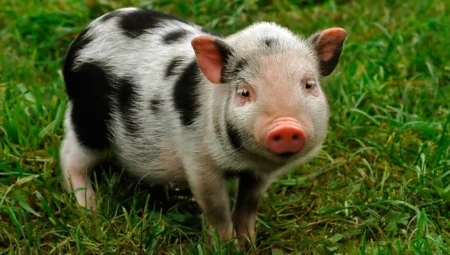Seasonal changes can indeed impact pets, leading to stress and behavioral changes. Understanding how different seasons affect pets is crucial in providing them with appropriate care and support. Here’s a comprehensive guide outlining the seasonal stress that pets may experience:
1. Summer:
Heat-Related Stress:
- Pets, especially those with thick fur or brachycephalic breeds, can suffer from heat stress or heatstroke in summer.
- Overexertion, dehydration, and exposure to high temperatures can lead to distress in dogs and cats.
Fireworks and Loud Noises:
- Fireworks displays during holidays like Independence Day can terrify pets due to the loud noises, causing stress and anxiety.
Pests and Allergens:
- Increased presence of fleas, ticks, mosquitoes, and allergens during summer can cause discomfort, itching, and skin allergies in pets.
2. Winter:
Cold Weather Concerns:
- Exposure to extreme cold can affect pets’ health, causing hypothermia or frostbite, especially in short-haired breeds.
- Lack of proper shelter or outdoor exposure in harsh conditions can lead to stress.
Less Outdoor Time:
- Reduced daylight and unfavorable weather might limit pets’ outdoor activities, affecting their exercise routines and leading to boredom or restlessness.
Holiday Stress:
- Changes in routine during the holiday season, decorations, guests, and travel plans can cause anxiety and stress in pets.
3. Spring:
Allergens and Pollen:
- Spring allergies affect pets similarly to humans, causing itching, skin irritation, sneezing, and respiratory issues due to pollen and allergens.
Parasite Season Onset:
- Rising temperatures in spring increase the activity of parasites like fleas, ticks, and mosquitoes, leading to discomfort and potential health issues.
Gardening and Toxic Plants:
- Exposure to potentially toxic plants, pesticides, or fertilizers in gardens during spring poses risks to pets’ health.
4. Fall:
Temperature Fluctuations:
- Transitioning from warm to cooler weather might affect pets’ comfort, especially if temperatures drop suddenly.
Routine Changes:
- Changes in daylight hours and the end of outdoor activities due to cooler weather can disrupt pets’ routines, leading to restlessness or boredom.
Holiday Preparations:
- Similar to winter, preparations for upcoming holidays like Halloween or Thanksgiving can introduce stressors to pets.
Managing Seasonal Stress in Pets:
- Maintain Consistency: Stick to regular routines, feeding schedules, and exercise regimens regardless of seasonal changes.
- Provide Comfortable Environment: Ensure pets have appropriate shelter, bedding, and protection from extreme weather conditions.
- Preventative Healthcare: Regularly check for parasites, maintain vaccination schedules, and consult veterinarians for seasonal health concerns.
- Indoor Entertainment: Offer stimulating indoor activities, toys, or puzzles to keep pets mentally engaged during extreme weather conditions.
- Calming Techniques: Use pheromone diffusers, soothing music, or comforting items to alleviate anxiety during stressful events like fireworks or holiday gatherings.
- Consult a Veterinarian: Seek professional advice if seasonal changes significantly impact a pet’s behavior, health, or well-being.
Understanding how different seasons affect pets allows pet owners to proactively address stressors, ensuring their beloved companions remain healthy, comfortable, and happy throughout the year. By recognizing and managing seasonal stressors, pet owners can provide the necessary support to alleviate discomfort and promote their pets’ well-being.

What are the most stressed pets?
Various factors contribute to pet stress, and certain animals are more prone to experiencing stress than others due to their temperament, sensitivity, or specific care requirements. Here are some of the most stressed pets and reasons for their susceptibility to stress:
1. Cats:
- Environmental Changes: Cats are highly sensitive to changes in their environment, such as moving to a new home, rearranging furniture, or introducing new pets.
- Lack of Territory Security: They’re territorial animals and may feel stressed when they perceive their territory invaded by other animals or unfamiliar scents.
2. Dogs:
- Separation Anxiety: Dogs can experience stress when separated from their owners for extended periods, leading to destructive behavior or excessive barking.
- Loud Noises and Fireworks: Many dogs are sensitive to loud noises like fireworks or thunderstorms, causing fear and anxiety.
3. Birds:
- Social Isolation: Birds, especially social species like parrots, can experience stress if kept alone without adequate social interaction and mental stimulation.
- Environmental Changes: Changes in their environment, including relocation of their cage or disruptions in routine, can cause stress.
4. Small Mammals (Rabbits, Guinea Pigs):
- Predator Anxiety: Being prey animals, sudden movements or perceived threats can stress small mammals. Loud noises or sudden handling may cause anxiety.
- Housing Conditions: Inadequate cage size, improper temperature, or insufficient hiding spots can lead to stress in these pets.
5. Reptiles:
- Temperature and Humidity Fluctuations: Reptiles are sensitive to changes in temperature and humidity levels. Inconsistent environmental conditions can stress them.
- Handling Stress: Improper handling or excessive handling can stress reptiles, especially if they’re not accustomed to human interaction.
6. Fish:
- Water Quality and Tank Conditions: Poor water quality, overcrowded tanks, or sudden changes in water parameters can stress fish, leading to health issues.
- Incompatible Tank Mates: Aggressive or incompatible tank mates can cause stress in fish due to territorial disputes or bullying.
Reasons for Pet Stress:
- Changes in Routine: Any disruption in their daily routine or environment can cause stress in pets.
- Lack of Socialization: Insufficient socialization or isolation from companionship can lead to stress.
- Health Issues: Underlying health problems, pain, or discomfort can cause stress in pets.
- Loud Noises or Fear Triggers: Events such as thunderstorms, fireworks, or sudden loud noises can induce stress.
- Inadequate Care or Environment: Poor living conditions, improper diet, or lack of mental stimulation can contribute to stress in pets.
Understanding the triggers and recognizing signs of stress in pets is crucial. Providing a stable environment, proper care, social interaction, and addressing their specific needs can significantly reduce stress levels and promote their overall well-being. Regular veterinary check-ups and proactive measures to alleviate stressors play key roles in ensuring a happy and stress-free life for pets.




